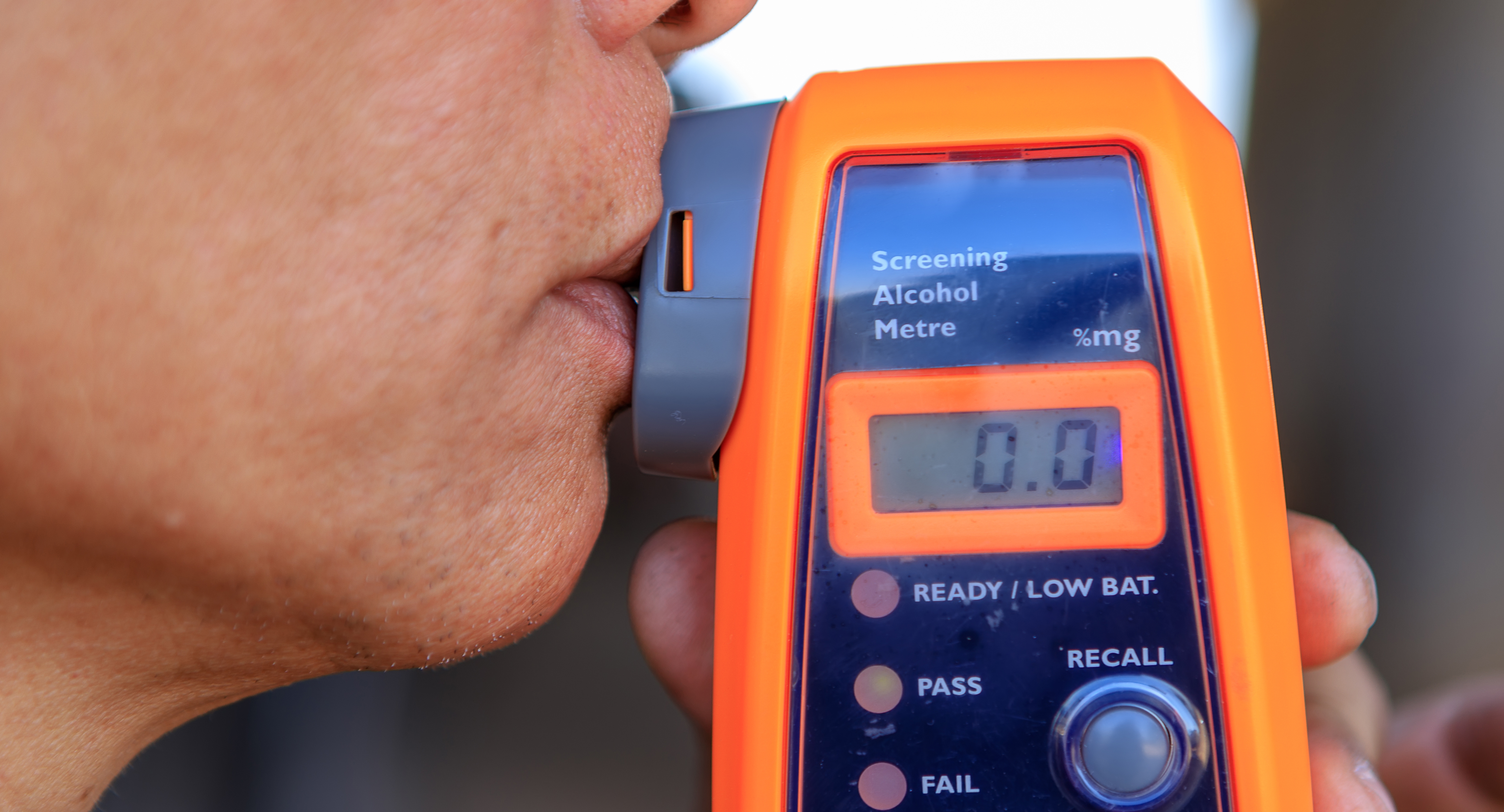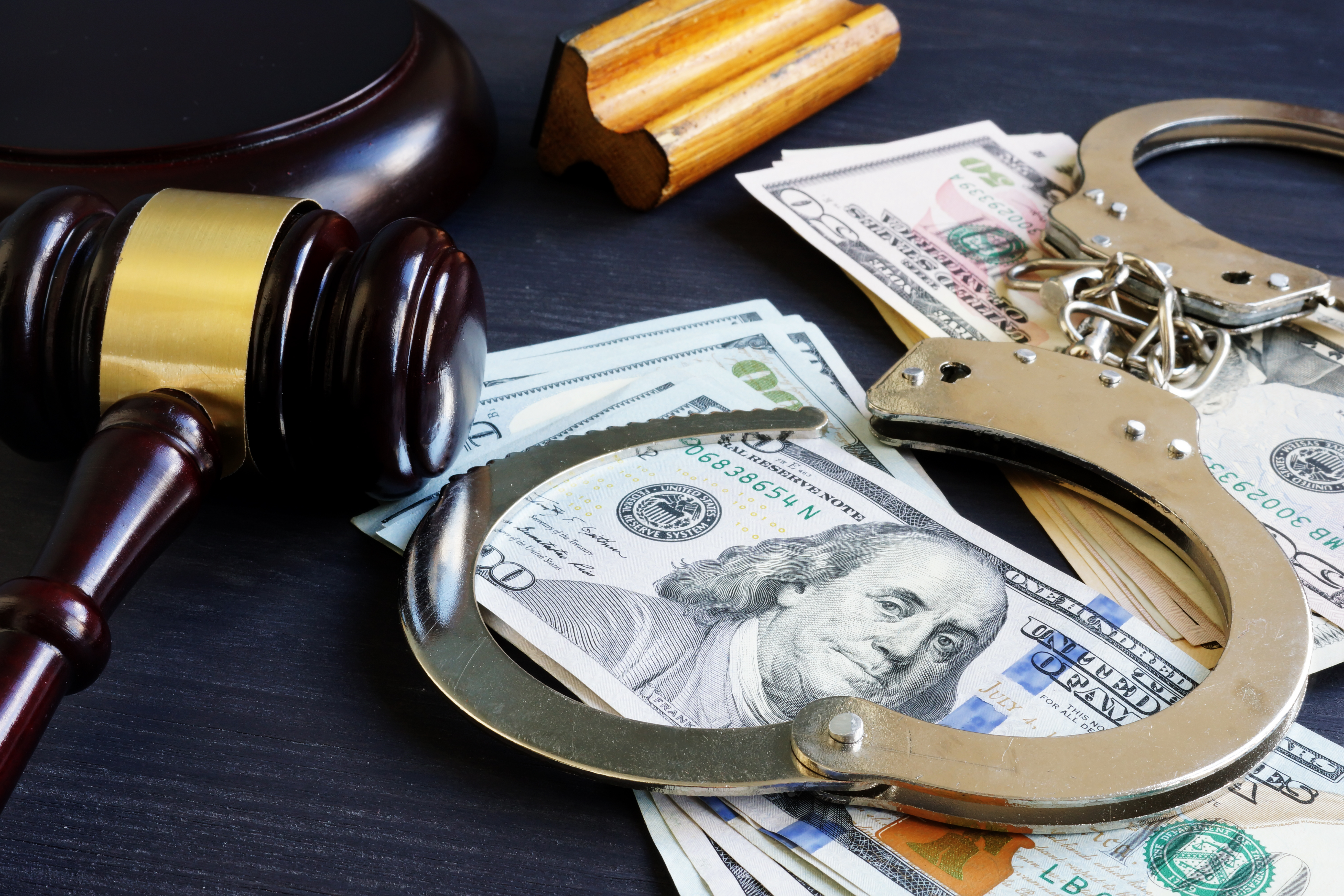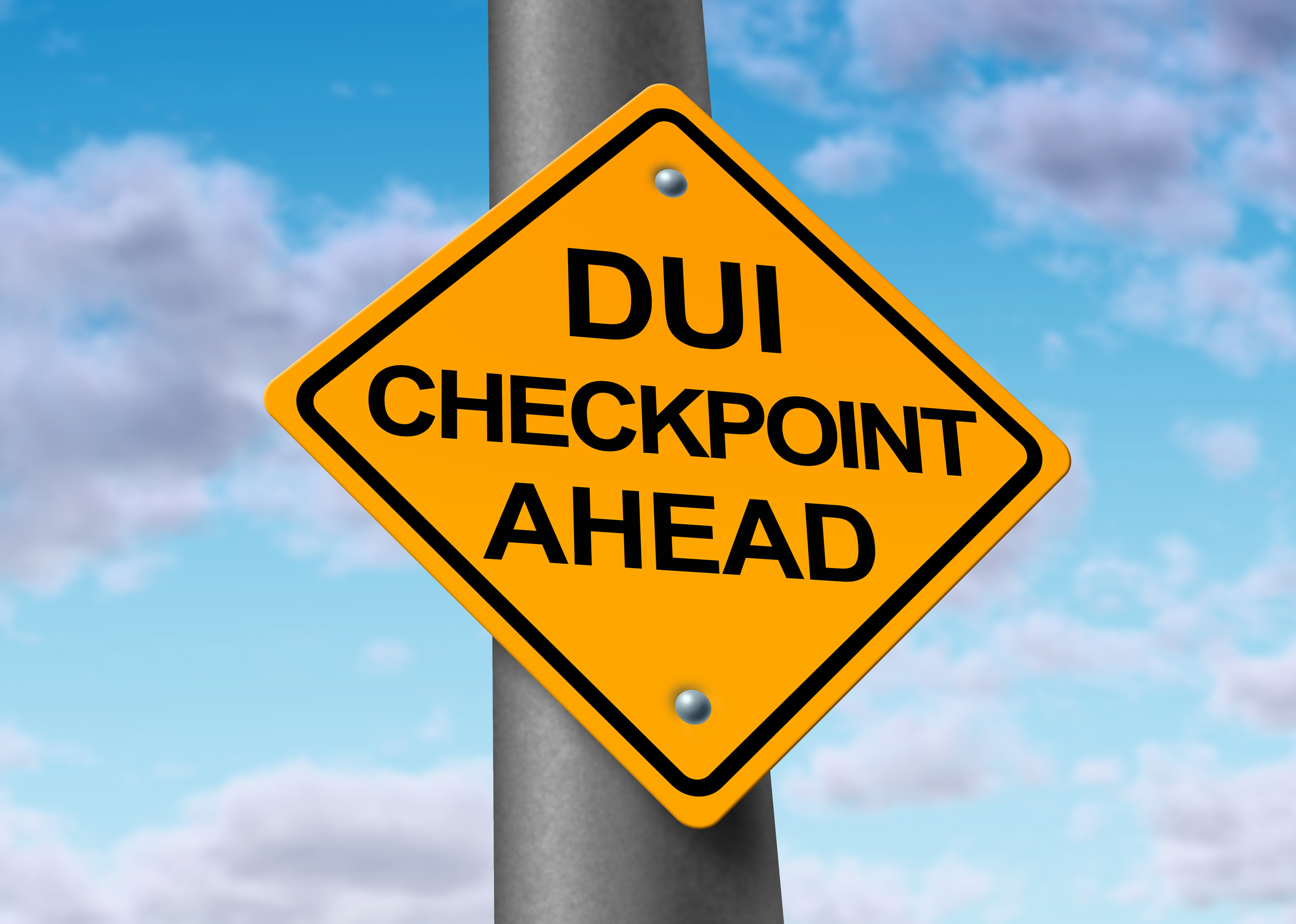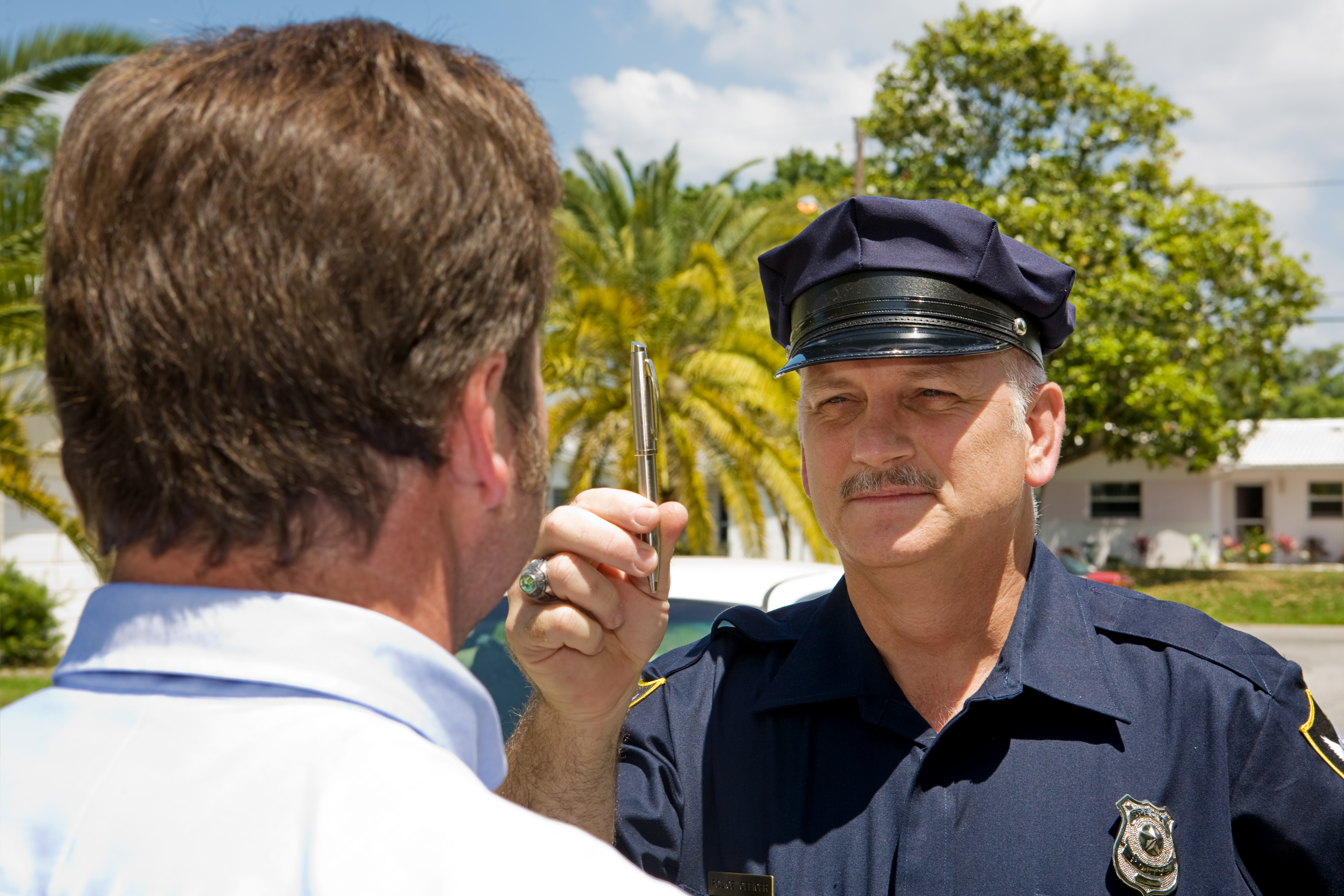A Texas law allows the sale of hemp-derived tetrahydrocannabinol (THC) products with a concentration below .3%. In a three-month project, we tested ten samples to see if they met the legal requirements.
“Legal” cannabis stores have sprouted up across Texas, and if you haven’t noticed the shops, you’ve certainly seen the ads on social media promising 100% legal ways to improve your sleep or mood.
But are these products really legal? If you ask most citizens (and even law enforcement officers), they’ll tell you that marijuana is illegal in Texas, aside from very limited medical exceptions.
Very few people know for sure. The law is complicated and arbitrary. We also learned that consumers probably aren’t getting what they pay for.
Michael & Associates, an Austin-based criminal defense law firm, purchased random samples of Delta-9 THC and CBD edibles from across the state and sent them to an independent lab to determine whether they meet state and federal legal requirements. The short answer is that all of them could be considered legal based on total THC content, while all of them could be considered illegal based on weight.
Key Takeaways
- While all gummies passed the potency standard of .3% THC, they failed the weight standard defined by Texas Health and Safety Code sec. 481.116, which specifies that any cannabis item weighing more than four grams is classified as a second-degree felony with a minimum jail sentence of 180 days. All samples weighed at least four grams.
- 19 states and Washington D.C. have further clarified the law for edibles, requiring potency of no more than 10 milligrams per gummy or 100 milligrams per package. When that’s the standard, four samples fail at least one of those two criteria. However, Texas is not one of the 19 states.
- Just 10% of samples were close to the potency levels marked on the package. Some were significantly more potent than advertised, while others contained significantly less Delta-9 than promised.
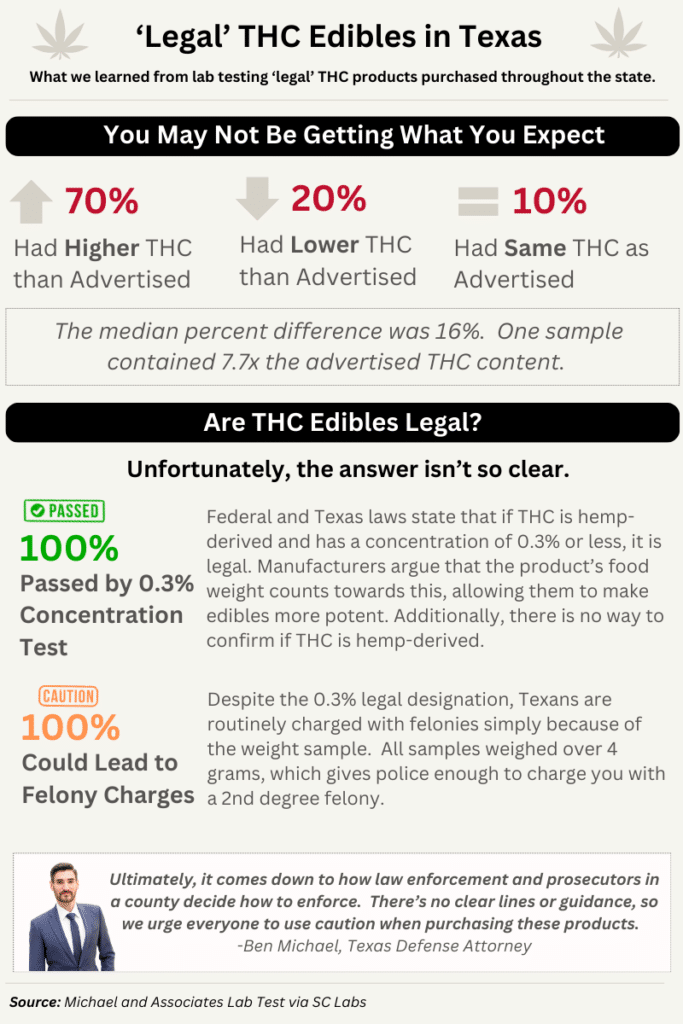
What’s Considered Legal?
Basically, what it boils down to is that state lawmakers crafted and passed a law without fully understanding the agricultural distinctions between hemp and marijuana, and the result is that no one is quite sure how to enforce the law.
Edibles, including gummies, that contain CBD and/or THC are often confused with cannabis edibles. The only distinction is the amount of THC each edible contains. To be considered a legal edible, the Delta-9 THC potency must be below .3%. If that’s the only criterion, all of the gummies we tested are technically legal in Texas.
However, law enforcement officers cannot determine on sight whether an item they find is legal — they can’t even distinguish between traditional candy and CBD candy. The only way for anyone to know the difference between legal and illegal products is from the lab results provided by the manufacturer (typically available by QR code on the packaging).
You Can Still be Arrested for Carrying Legal THC Products
While the .3% hemp limit refers to the dry weight of the hemp plant, other Texas laws regulate cannabis by total weight. Regarding edibles, Texas includes all of the additional ingredients toward those weights. Possessing a single gram is considered a third-degree felony, and a single gummy often weighs up to seven grams.
Texas Health and Safety Code 481.116 states that penalties for possessing THC edibles will be based on the edible’s total weight (including everything that is not THC, such as eggs, flour, sugar, water, etc).
Texas Health and Safety Code 481.103 classifies all cannabis edibles under Penalty Group 2, which also includes methamphetamine and ecstasy (MDMA).
View THC Possession Penalties in Texas
Penalties for THC possession are based on weight by gram.
- Less than one gram: State jail felony carrying up to 180 days to two years in state jail and a maximum fine of $10,000
- One to four grams: Third-degree felony carrying 2 to 10 years in prison and a maximum fine of $10,000
- Four to 400 grams: Second-degree felony carrying 2 to 20 years in prison (with a 180-day mandatory minimum jail term) and up to a $10,000 fine
- 400 or more grams: First-degree felony carrying 5 to 99 years or life in prison and up to a $10,000 fine.
These weight limits are intentionally set low because most drugs in Penalty Group 2 can be particularly potent and dangerous, even in small amounts. However, this also means that one packet of gummies, which often weigh 40 grams or more, could land you with a felony charge, even if the product meets the .3% potency requirement.
As you can see in the table below, every sample we tested passed the concentration test. However, the weight of a single gummy was enough to result in a second-degree felony charge.
THC Package Labeling May Not Be Accurate
Our testing found that the lab results retailers provide aren’t always accurate. Only one of the tested samples had THC content close to what was stated on the label.
Additionally, shady labs have popped up all over the U.S. While some manipulate potency data to make their products legal, others advertise stronger (legal) products that don’t live up to their potency promises.
Additional Findings
One sample had a type of THC too new to regulate: Some companies have found ways to sidestep the law. One sample advertised a potency of 7,000 mg per bottle or 350 per gummy. Our lab tests showed 1,713 mg of cannabinoids per container plus 2.18 mg of Delta-9 THC. The manufacturer has not provided lab results and attributes the difference to their use of completely new (and unregulated) forms of THC. This means there is no way to know how potent this item is, whether it meets its advertised potency claims, or how the new compound might affect consumers.

Texas has no age requirement for CBD purchases: Though many retailers require purchasers to be at least 18, Texas does not have an age requirement for CBD purchases, so technically, buyers of any age can purchase the items. This is troubling because some products are intentionally designed to look like candy. (Note that the products pictured above are not affiliated with the candy brands.). We did not have to verify our age with ID for any of the samples purchased — even though Texas requires age verification for pornography.
Lack of child-safety packaging: Only two samples were shipped in the required child-safe packaging. The others were in standard Ziploc packets that a child could easily open.
Inconsistent definitions of a “serving”: While it’s relatively simple to tell what is considered a joint, edibles are far more complicated. Some labs use “units” to define a serving. Others use “units” as the total amount in the entire package. Some report in grams, some in milligrams, and some use a jumbling of the two terms to make potencies look stronger than they really are. Others manipulate the “units” and “servings” to make the gummies appear weaker. Some manufacturers provide no weights or measurements at all, requiring users to attempt to calculate the potency independently.
Incorrect potency reports could be dangerous: If you eat what you believe to be a low-potency CBD gummy and you get behind the wheel, you could end up facing both drug possession and DWI charges. This also applies if you consume a whole gummy and it turns out that the serving size is half or even one-fourth of a gummy.
You may have to order by mail: Some shops in areas with strict regulations are refusing to sell Delta-9 products in person, instead requiring purchases to be made online. Questions over legality, inaccurate lab results, and high-profile raids have made smaller retailers fearful about the state’s potency requirements.
You can be charged with DWI: In addition to a drug possession charge, you can be charged with DWI if police have probable cause that you are under the influence of any THC.
Enforcement is erratic: Some cities, including Austin and Dallas, don’t prosecute low-level marijuana offenses at all. Others, such as Comal and Collin counties, have zero-tolerance policies for marijuana arrests. A single legal gummy or one joint can leave you with a criminal record for life.
Race also affects outcomes: Though marijuana use in the U.S. is about equal among Blacks and whites, according to the American Civil Liberties Union, Blacks are 3.73 times as likely to be arrested for marijuana possession.
How Delta 9 Became Legal in Texas
How Delta-9 became legal — federally and in the Lone Star State is complicated. Technically, Kentucky Sen. Mitch McConnell is responsible for passing the original legislation. He introduced a provision in the 2018 Farm Bill that legalized industrial hemp.
Texas soon followed suit by passing House Bill 1325, which mirrored the federal farm bill and was intended to help industrial hemp farmers.
Industrial hemp is a form of cannabis that is converted into a wide variety of products, including cannabidiol, a non-intoxicating cannabis compound commonly called CBD. That part of the law was intentional, and it launched a multi-billion dollar industry. Now, consumers can buy CBD-infused seltzers, lattes, and medical remedies in hundreds of retail stores.
But the law’s most significant impact was accidental – it created a legal market for synthetic THC, the primary intoxicant in marijuana.
The U.S. Department of Agriculture continues to regulate hemp production. However, as long as the Delta-9 THC’s dry-weight concentration is below 0.3%, the federal and state laws essentially legalized hemp-based cannabis products.
Even many experts find the laws perplexing, mainly because hemp and marijuana are derived from the same cannabis plant, and there’s currently no way to accurately perform field testing to distinguish legal Delta-9 products from illegal ones.
Even police officers don’t always understand the law. Every day, law enforcement officers arrest Texans for possessing THC products, regardless of the potency.
Some of the enforcement inconsistencies are due to a lack of awareness. Many people don’t know that these products were legalized, and lawmakers have kept quiet. No one wants to advertise that they didn’t fully understand the implications of a law they supported.
And if Delta-9 regulations seem cloudy, the laws restricting Delta-8 THC are even less clear. The Texas Department of State Health Services recently updated its consumable hemp program guidance to clarify that Delta-8 is not legal. They classified it as a Schedule I controlled substance. However, a temporary injunction has been issued due to a pending lawsuit, and retailers continue to sell Delta-8 products.
Additionally – because there’s no accurate way to know whether a product meets the legal requirements – if you get caught with any CBD edible, you’re probably going to be arrested, even if you’ve been assured by a retailer that you’re carrying a legal product.
Then there’s the social stigma. Many confuse legal hemp with legalized pot. Others don’t want the shops in their neighborhoods, and parents worry about kids having access to edibles designed to look and taste like candy.
And most people don’t understand the differences between hemp, cannabis, and marijuana.
Jonathan Caulkins, a professor of public policy at Carnegie Mellon University, explains that some of the confusion stems from inconsistent use of the terms marijuana and hemp.
Caulkins explains:
- Marijuana refers to the old-fashioned, smokable botanical material
- Cannabis is the full range of intoxicating products produced from the cannabis plant (vapes, dabs, edibles, etc.), whether legal or not
- Hemp is a product that meets/exploits the definition in the 2018 federal Farm Bill of being no more than 0.3% Delta-9 THC by weight.
Caulkins says the weight limit was intended to cover non-intoxicating products (rope, cloth, etc.). However, the hemp industry has seized on loopholes in the Farm Bill definition and used those loopholes to evade the bill’s intent and any effective regulation.
It’s Important to Note that Not All Products are Illegal
There appears to be no end in sight to the fight over legal vs. illegal THC products.
Earlier this year, Collin County District Attorney Greg Willis told the Dallas Morning News that his office handled approximately 700 THC cases in 2023. Willis says that despite manufacturer promises that the THC content was lower than .3%, independent testing almost always showed THC levels above the legal limit.
However, our findings did not support these claims. All submitted samples passed the legal threshold of no more than .3% Delta-9.
Earlier this year, Allen Police Chief Steve Dye led a raid of several shops, alleging that retailers were marketing and selling products containing illegal levels of THC (potentially without their knowledge).
“It’s being sold right in front of our eyes,” Dye told CBS News then.
While Dye says that all of the items seized in the raids contained illegal levels of THC, there is no way to know whether these allegations are accurate without viewing the city’s testing results.
A request for these results filed by Michael & Associates under the state’s Public Information Act was denied. The reason given was that the information was being withheld because it would be presented as evidence in a pending lawsuit.

The final decision about whether the records should be released ultimately falls to State Attorney General Ken Paxton, whose office has up to 45 business days (January 13, 2025) to release a decision.
No decision has been announced to date. However, Paxton, who has made no secret of opposing legal THC in Texas, lives in Collin County. His wife, Angela, is a state senator representing Allen, where the raid occurred.
As AG, Paxton has also filed lawsuits against Dallas, Austin, Denton, Elgin, Killeen, and San Marcos after those cities passed ballot measures to restrict prosecution for possessing small amounts of marijuana products.
Marijuana, CBD, and THC are expected to be hot issues in the state Senate during the 2025 legislative session because Lt. Gov. Dan Patrick has vowed to ban all Delta-8 and Delta-9 products in the state. However, his efforts to restrict CBD and THC in Texas over the past few years have been unsuccessful.
THC Cases in Texas
A McAllen mother was arrested and charged with “injury to a child criminal negligence” when her two-year-old child found a gummy containing THC in her purse and ate it. The woman’s bail was set at $25,000.
Three men from the Houston area were arrested in Henrietta, Texas, for having just over 2.5 pounds (1,152 grams) of edible THC in their vehicle on a trip back from Colorado. They were carrying a combination of edibles, including gummies, chocolates, and brownies. For reference, one Little Debbie brownie is 113 grams, so they were carrying the equivalent of just over three boxes of Little Debbie brownies. In gummies, that would be about 226 (roughly two packs of 110), assuming that each was 5 ounces. The bond for each man was set at $50,000.
One woman was arrested in Collin County for possessing a vape pen that a shop owner explicitly told her was legal. Police said that when they sent the pen for independent testing, results came back at more than seven times the legal THC level. Her bond was set at $2,500.
Ask the Experts
To better understand the nuances around THC in Texas, we turned to a panel of experts to get their take. You can click on each one to see their bios and responses to our questions.
-

Jonathan Caulkins
Jonathan Caulkins – H. Guyford Stever Professor of Operations Research and Public Policy at Heinz College at Carnegie Mellon University
Why are there so many negative perceptions surrounding legalized marijuana?
Because the US has fumbled cannabis legalization badly in many respects. It’s pretty absurd how bad the labeling is, the dysfunction created by the farm bill, the frequency with which products contain pesticides, mold, etc. that can be harmful when inhaled, etc. It’s embarrassing that we, as a country, have fouled it up so badly. -

Traci Toomey
Professor, Division of Epidemiology & Community Health and Director of the Cannabis Research Center at the University of Minnesota
What are the distinctions between marijuana and hemp?
Cannabis is the scientific name for the plant. The term marijuana has been used for decades to refer to cannabis that causes intoxication or gets you “high.” The term marijuana is still used, including by the federal government, but the term cannabis has recently become more common. The term marijuana also has some racist history, so some prefer to use the term cannabis for that reason. Hemp is a form of cannabis that was traditionally used as an industrial product to make fiber, paper, etc., and had no intoxicating effects. The 2018 federal Farm Bill defined hemp as “cannabis with delta-9 THC concentration of no more than 0.3% by dry weight” and removed hemp from Schedule I. Delta-9 THC can be derived from hemp and infused into edibles and beverages, which can get you high.Are marijuana laws, in your opinion, erratically enforced?
Historically, despite Black and white individuals using cannabis at roughly the same rate in the U.S., Black people have been arrested and incarcerated more often for cannabis possession.
-

DB Poli
Director of Cannabis Studies at Roanoke College
What are the distinctions between marijuana and hemp?
Distinctions between “marijuana” and “hemp” are legal definitions. Botanically, the terms are the same plant species (like Zea mays) that have botanical variations that produce different chemical compounds (like poppies!) that either have above (marijuana) or below (hemp) 0.3% THC in them. The rest of the chemical composition in a variety is made up of cannabinoids, terpenes, flavonoids, etc. These compounds help create individual varieties (“strains”) that produce different effects either recreationally or medically. Both hemp and marijuana can be used for medicine. Marijuana is generally recreational. Hemp is more industrial uses.
Why are there so many negative perceptions surrounding legalized marijuana?
Negative perception started in the 1930s with Harry Anslinger’s agenda to use cannabis to help with a racist agenda to remove/discourage/target people of color who were immigrating into the U.S. By adopting and vilifying the cultural word “marijuana” in his propaganda, he could use fear of the unknown to provide momentum to his case. He also connected with the media-mogul William Randolph Hearst who was in paper. Cannabis was the number one competitor for paper. Vilifying cannabis provided the outcomes Anslinger sought; scientific evidence has never supported any of the Anslinger claims! Anslinger was in a governmental role for almost 30 years and in the 70s, [President Richard] Nixon latched on to this “marijuana is bad, our number one enemy” mentality to use in his own political agenda. This continued into the 80s under [President Ronald] Reagan. Anti-drug education started to take hold with “Just Say No” and “D.A.R.E”. Whole generations were fed misinformation about the plant.
Are marijuana laws, in your opinion, erratically enforced?
My opinion is simple. Laws regarding cannabis have always been enforced to meet the political needs of a time and area. This has been unjust, unfair, and biased. Having a disconnect between federal and state level laws also makes this a risky place for most.
-
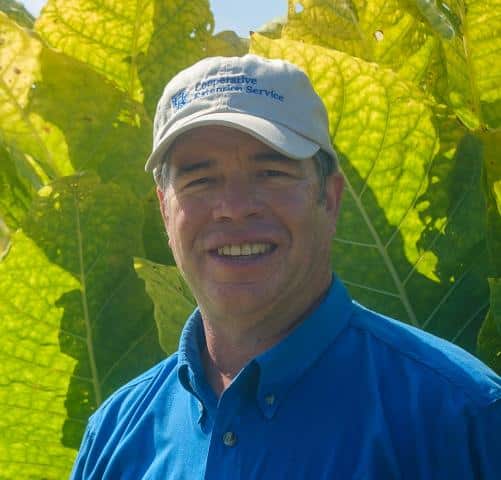
Robert Pearce
Extension Professor, University of Kentucky
What are the distinctions between marijuana and hemp?
The 2018 Farm Bill defined hemp as Cannabis sativa L. and any part of that plant, including the seeds thereof and all derivatives, extracts, cannabinoids, isomers, acids, salts, and salts of isomers, whether growing or not, with a Δ-9 tetrahydrocannabinol (THC) concentration of not more than 0.3% on a dry weight basis. I use this definition and the regulatory guidance adopted by the USDA Final Rule on Hemp for making the distinction for the purpose of hemp production in agricultural settings. They are almost impossible to distinguish without a chemical test of the THC level in the plant/product in question.
Why are there so many negative perceptions surrounding legalized marijuana?
This is not really in my direct area of expertise, so this is just my personal opinion. For many of us who lived through the “war on drugs,” marijuana was vilified as a gateway drug. I think these perceptions continue to live on. I also think that there is a greater awareness these days of the impact of impaired driving and the potential for people to abuse marijuana.
Are marijuana laws, in your opinion, erratically enforced?
My observation on how hemp product laws are enforced is that there is such a patchwork of state laws/regulations that it can be difficult to know what is legal from state to state. So, I think it varies from state to state as to what regulations are enforced and how they are enforced.
-

Jeffrey Graybill
Extension Agronomist at Penn State University
What are the distinctions between marijuana and hemp?
Federally, and here in Pennsylvania, any Hemp products that contain more than 0.3 % THC are then considered marijuana and a Schedule 1 drug. Laws for growing Hemp (< .3% THC) vary quite a bit from state to state. Here in PA, a farmer must obtain a permit, have a background check, and submit samples of the growing crop for THC testing in order to grow any hemp. We also have a medical marijuana law, which is a totally separate statute. These plants must be grown indoors under lock and key and are highly regulated by the state.
Why are there so many negative perceptions surrounding legalized marijuana?
As far as negative perceptions, I think that is a cultural issue and varies across the country and states. Here in PA, some of the hemp growers are conservative Mennonite and Amish farmers. They are just fine with non-THC forms of hemp but would not want the high-THC products legalized in almost any form. Many people do accept medical use, but there is a perception that some are misusing it, and it has a negative image by some here in PA.
Are marijuana laws, in your opinion, erratically enforced?
I think enforcement here in PA varies from municipality to municipality, and so is another area of confusion for both the police and those who use products such as CBD.
Our Methodology
Michael & Associates purchased samples of edible hemp products from retailers across the state. Some were manufactured in Texas, while others were manufactured elsewhere in the U.S., but all are for sale to Texans, and all published claims that they met the state’s potency requirements for legal CBD.
For consistency, all samples were Delta 9 gummies with comparable potency claims and serving sizes. To prevent a conflict of interest, all edibles had their initial lab testing performed by a completely different lab than the one we partnered with for our independent testing. If no serving size was specified on the retail packaging, the lab calculated one gummy as one serving.
Samples were submitted to SC Labs in Santa Cruz, Calif., an ISO 17025-accredited lab that utilizes liquid chromatography to determine potency. This was a double-blind test, so neither the lab nor Michael & Associates representatives knew which manufacturer or store provided the samples that were legally questionable. However, we documented published lab results (with retailer and manufacturer names redacted) to correspond with each sample. Although we don’t know which brands failed the testing or which sample was purchased at which location, we know geographically where each sample was manufactured and its published potency level.
Duplicate specimens were submitted simultaneously in case further testing was needed. All lab Chain of Custody protocols were strictly enforced and followed.

